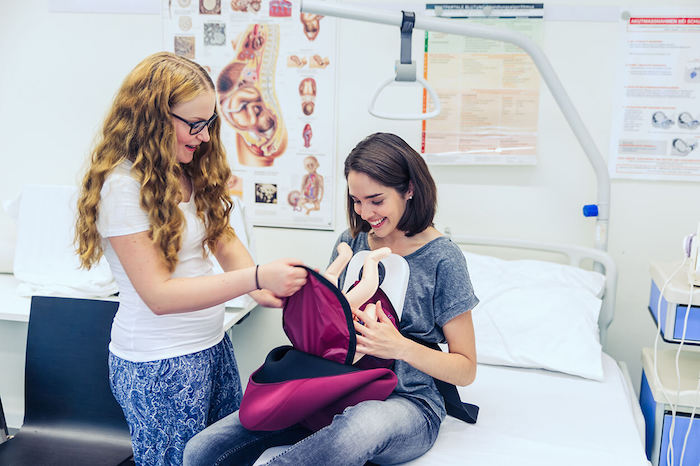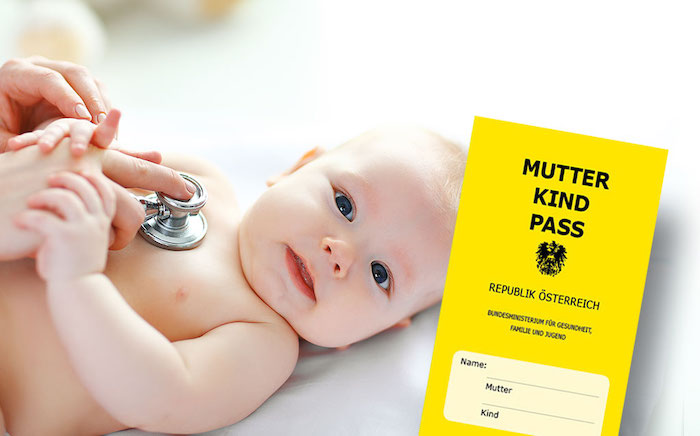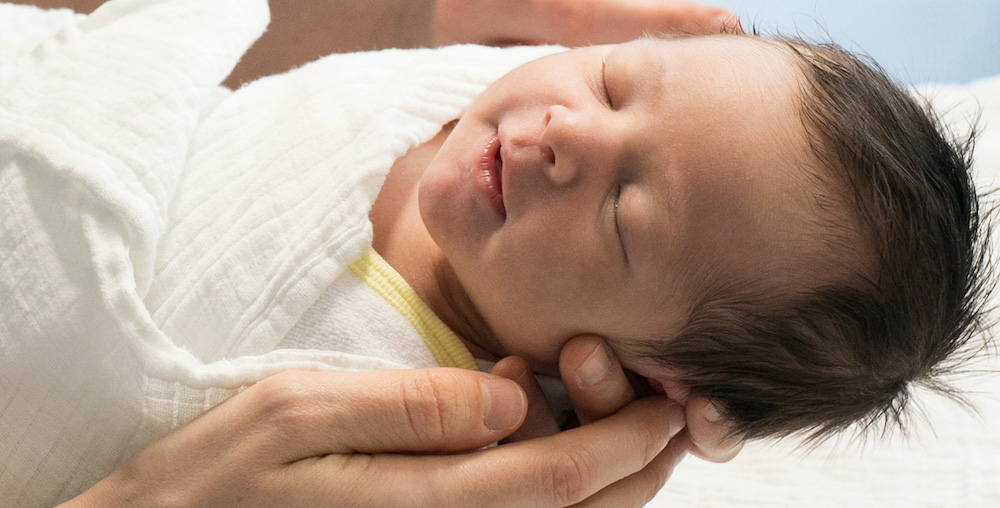It is not very often that after living in a country for nearly a decade, you get to experience something completely new and to see that country from a brand new perspective. But that is exactly what happened for me at the beginning of 2023 as my partner and I began preparing for the birth of our baby in Vienna.
Getting ready for the birth of your first child can be overwhelming and slightly scary for any parents. But, living in a foreign country and speaking a foreign language can really add to the insecurities and disorientation that come with planning for such an important event.
So, to provide a sense of how to organize and handle a pregnancy in Austria, here is a general reflection on what we did and what we learned during this special (and eye-opening!) journey.
Upon finding out that you are pregnant, there are two things which must be organized immediately.
These are:
• setting the appointment with your gynaecologist or frauenarzt to get the offical ball rolling and to decide which hospital you would like to give birth
• organizing a midwife (hebamme).
It is important to ask each gynaecologist and midwife beforehand if they are paid for by the national health program, as many are not, and it is frustrating to switch to someone new once you have already booked appointments.
At the gynaecologist
During your first appointment with your gynaecologist, you will receive your Mutter-kind-pass (mother and child passport), which is a small yellow book filled with all the medical information, doctors appointments, examinations and vaccinations.
Typically, Austria likes to keep things as traditional as possible, and so the mutterkindpass is still not digitized in the health system, meaning that parents are in a constant state of panic that they have not lost this vital little book!
The first meeting with the gynaecologist will also be a chance for them to ask which hospital you plan on having the baby. If you really have no ideas or preferences, it is good to read reviews, talking to friends or the gynaecologist about which hospitals are recommended.
Depending on where you live in Vienna, if you go public or private, or where your midwife will work then it is easy to narrow down your preference. If you planning on going through public hospitals, the gynaecologist will help you sign up through the City of Vienna (StadtWien) with your top 3 choices, although as far as I have heard you are nearly always given your first choice.
You can also sign up on your own either directly through the hospital or through geburtsinfo.stadtwien, the only drawback being you are back to square one if they are full. If you will go to a private hospital you simply call them and sign-up, although of course the earlier the better.
Although it was not the closest choice to where we live in the 18th District, we chose to give birth at Saint Josef Krankenhaus, as my partner’s mother and sister had both worked there and it has a fantastic reputation, with a special focus on childbirth that is shown by the fact that they facilitate the most births out of any hospital in Austria!

Your midwife (hebamme)
It is important to find your midwife as soon as possible in Vienna, as they are usually very busy and many do not have space in their schedules.
Depending on your finances and your preference, you can choose to work with a private mid-wife who will come with you to the hospital on the day of the birth, or one provided by the hospital (assuming you are planning on doing everything through the Kasse, or national health program). To be able to meet and decide upon a public midwife that you will feel comfortable with, it is important to organize it early, unless you are happy to have whichever midwife is working on the day of your birth. The first meeting with the midwife is paid for by the health service, as it is required for your Mutter-kind-pass.
One of the important things to know when looking for a midwife, aside from the fact that the mother should feel as comfortable and safe as possible, is what kind of birth you want. Whether you will stay in the hospital overnight, for a longer period, or to have a home birth are all important factors in who will accompany you on this journey, and this is also explored below.
Ambulanz (Clinic), Station (Ward) or Homebirth
Something that surprised me most about preparing for giving birth in Austria was the options that you have. You can choose two different locations to give birth at the hospital, either at the ambulanz (clinic) or the geburtsstation (birth station).
The primary difference between these two choices are how long you will stay after the birth.
AMBULANZ
If you give birth at the Ambulanz, you are able to leave the hospital within a few hours after the child is born. This is preferable for people who have other children at home, who want to spend their first night at home, or who do not want an extended stay in the hospital.
But in order to be allowed this, you must provide proof that you have a midwife who will visit you every day for five days at home after the birth.
In this time, they will judge the baby’s weight, provide additional vitamins, check nutrition and skin, and take blood for a metabolism screening.
GEBURTSSTATION
If you stay at the Geburtsstation, then you are required to stay in hospital for three days after the birth, so that they can do all of the aforementioned checks with their own in-house midwives. For some, the security of staying in the hospital for a few days after the birth is a huge relief, especially with your first child.
This means that you do not need to pay a midwife to come to your home for the five days after the birth, but many prefer the freedom of being able to go home when you like. As most hospitals do not have space for the birth partner to stay overnight with the mother and baby, we chose to give birth at the Ambulanz Clinic, as my partner did not wish to stay in hospital without me.
For a birth that results in a C-section or experiences complications, mother and baby are required to stay in hospital for five days, regardless of your prior plan or intention.
If you decide to have a home birth, then you can speak to doctors and birth specialists to see whether your living situation and support network will work for you. Of course you have to find your own midwife to come to your home before and after the birth, and pay privately, but the state system will most likely reimburse half of your expenses (estimated at 1,900 euros -to – 2,800 euros). There are also midwives working for the public health system who will attend and support a home birth so that you do not have to pay privately, but they are few and far between.

Mutter-kind-pass and extra ultrasounds and screenings
As introduced above, the Mutter-kind-pass holds all the important medical information for your baby before and after birth. This becomes the child’s medical passport, and is also extraordinarily important as it serves as the proof that you have been attending all tests and appointments to guarantee the child’s health.
This in turn is not only very helpful to keep your mind at ease that you are doing all you need for your baby, but also that completion of the requirements is the only way to guarantee that you will receive child-care support from the government. Without these mandatory appointments and tests, the government has the right to dismiss your claim for financial support, which can be incredibly important for many people.
The Mutter-kind-pass does a great job of clarifying which appointments are necessary to receive financial support, and also makes it very clear which appointments are highly recommended but not required. Most of these recommended tests are not paid for by the health service, but nearly everybody we spoke to had made them anyway as of course nobody is willing to leave your baby’s health to chance when so many issues can be seen and tackled in advance.
Your regular gynaecologist and basic ultrasound check-ups are required and paid for (in which weeks and how often is made clear in the Pass), but we elected to undergo two ultrasound check-ups and a glucose monitoring test that are recommended but not required, just to be safe. The private tests ranged between 80 euros – 120 euros, but the quality, kindness and professionalism was worth every penny.
In the first and second trimester, we used a private ultrasound clinic (I highly recommend TwoCare if you’re living in Vienna!) to check for the Nackenfaltenmessung or “neck fold screening.” This screening can detect certain genetic problems or diseases by looking at the spinal fluid gathering below the base of the neck.
We also used the same clinic for the organ screening in which the doctors check for organ irregularities.
The benefit of these private ultrasounds is not only the peace of mind it provides, but the amazing quality of the images! It was stunning to see our unborn baby in colour and three-dimensional imaging, especially compared to the old, grainy machines in the public doctors office.
To be able to see oxygenated blood moving around his tiny body, and see the chambers of his miniature heart was an incredible experience that will always remain with us.
So once all of this was settled in our calendars and our heads, and we were nearing the due date, it was time to prepare for parenthood!
In the next post, our preparation for the birth at our hospital, the moment of truth itself and starting our life in Austria as a new family.
–––––––––––
See more here on expat baby topics in Dispatches’ archives.
Thom Harding was born and raised in the UK and USA, sharing his time between Bath and Boston. Upon completing his studies in Art History and Painting in Florence, Thom travelled around Mexico and India before moving to New Mexico to start his career as a Primary school teacher.
After completing his MA in Education, he now lives and works in Vienna, Austria and enjoys spending his free time hiking, reading, travelling and exploring around Europe.
See more of Thom’s work here in the Dispatches archive.
You can read more about Vienna here in the Dispatches archives.















